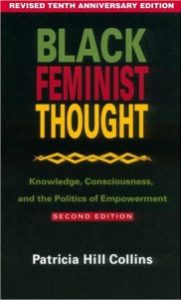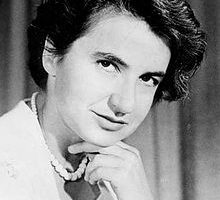
On this third Theme Thursday, we’d like to explore the idea of intersectionality, or the interconnected nature of social categorizations such as race, class, and gender as they apply to a given individual or group, regarded as creating overlapping and interdependent systems of discrimination or disadvantage. Yes women make $0.77 for every dollar that men make, but a black woman might make $0.63 for every dollar while Latina women make $0.54 for every dollar. To belong to multiple minority groups has a compounding effect.
 In 1990, Patricia Hill Collins explored the words and ideas of Black feminist intellectuals and writers in Black Feminist Thought: Knowledge, Consciousness, and the Politics of Empowerment. From the book cover “In spite of the double burden of racial and gender discrimination, African-American women have developed a rich intellectual tradition that is not widely known. In Black Feminist Thought, originally published in 1990, Patricia Hill Collins set out to explore the words and ideas of Black feminist intellectuals and writers, both within the academy and without. Here Collins provides an interpretive framework for the work of such prominent Black feminist thinkers as Angela Davis, bell hooks, Alice Walker, and Audre Lorde. Drawing from fiction, poetry, music and oral history, the result is a superbly crafted and revolutionary book that provided the first synthetic overview of Black feminist thought and its canon.”
In 1990, Patricia Hill Collins explored the words and ideas of Black feminist intellectuals and writers in Black Feminist Thought: Knowledge, Consciousness, and the Politics of Empowerment. From the book cover “In spite of the double burden of racial and gender discrimination, African-American women have developed a rich intellectual tradition that is not widely known. In Black Feminist Thought, originally published in 1990, Patricia Hill Collins set out to explore the words and ideas of Black feminist intellectuals and writers, both within the academy and without. Here Collins provides an interpretive framework for the work of such prominent Black feminist thinkers as Angela Davis, bell hooks, Alice Walker, and Audre Lorde. Drawing from fiction, poetry, music and oral history, the result is a superbly crafted and revolutionary book that provided the first synthetic overview of Black feminist thought and its canon.”



